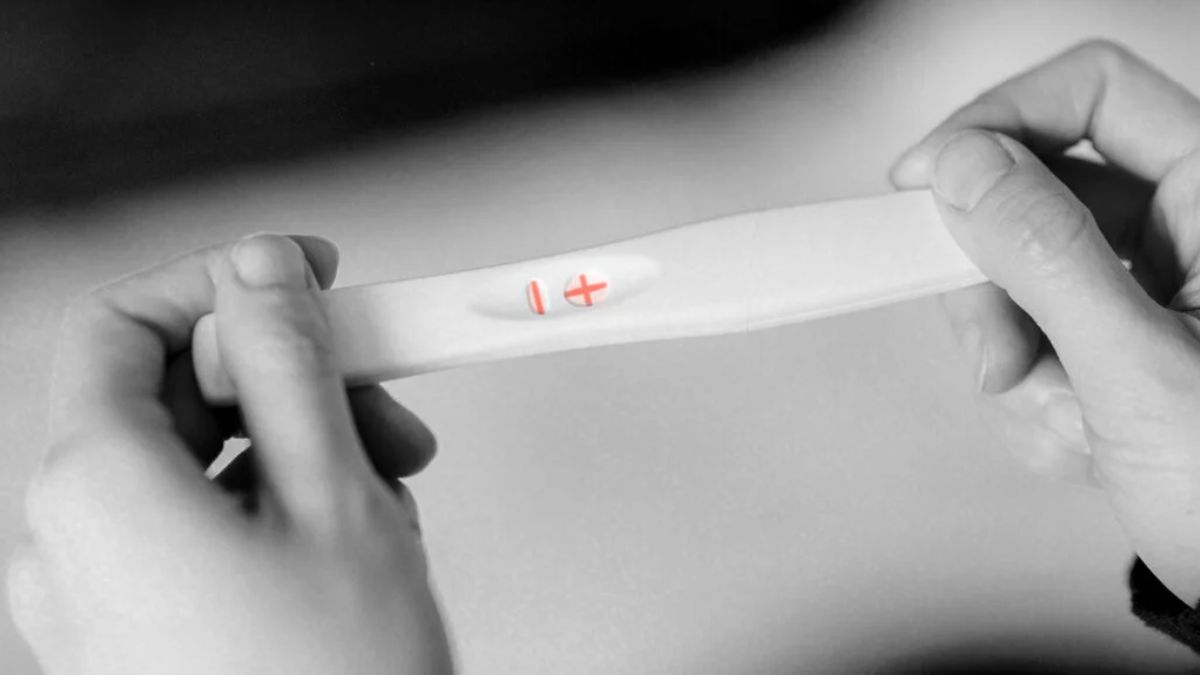Explore the intriguing question: Can a UTI make a pregnancy test positive? Uncover crucial facts and insights to better understand the interplay between urinary tract infections and pregnancy tests. Get accurate information for informed decisions with mucusplug.net!
Can a UTI make a pregnancy test positive?

Certainly, a urinary tract infection (UTI) has the potential to yield a false positive result on a pregnancy test due to certain factors. Pregnancy tests detect the presence of human chorionic gonadotropin (hCG), a hormone produced during pregnancy. In some cases, UTIs may cause a false positive by influencing hCG levels.
It’s important to note that ectopic pregnancies, where the fertilized egg implants outside the uterus, often generate lower levels of hCG compared to pregnancies developing in the uterus. The dilution effect in urine can further amplify this difference.
When a woman with a UTI takes a pregnancy test, the presence of the infection may interfere with the accuracy of the test, leading to a positive result even if she is not pregnant. It’s crucial for individuals experiencing such situations to consult with healthcare professionals for a thorough evaluation to ensure accurate and reliable results.
>Related post: Is metoprolol safe for pregnancy?
Can a UTI affect a pregnancy?

Certainly, urinary tract infections (UTIs) pose a potential threat to pregnancy and necessitate a closer examination of their impact. UTIs are pervasive among both pregnant and non-pregnant individuals, and the typical course of action involves the administration of medication to eliminate the infection.
However, the stakes are significantly higher for pregnant women, as the consequences of an untreated UTI during pregnancy can escalate to severe complications. If neglected, a UTI may evolve into a formidable infection, paving the way for grave outcomes such as preterm labor, premature delivery, or, in more tragic cases, fetal loss.
This underscores the critical importance of vigilance and proactive management of UTIs in pregnant individuals to safeguard both maternal and fetal well-being. Regular prenatal care, including routine screening for UTIs, becomes imperative to detect and address these infections promptly, thereby mitigating the potential risks they pose to the course of a healthy pregnancy.
What happens if UTI is left untreated for 2 weeks?

If a urinary tract infection (UTI) is left untreated for an extended period, typically around two weeks or more, the potential consequences can escalate into more severe health issues. Initially localized in the bladder, an untreated UTI may advance to infect the kidneys or prostate, posing a greater threat to overall health.
When the infection reaches the kidneys or prostate, it becomes more serious and has the capacity to spread into the bloodstream. This systemic dissemination can lead to a condition known as sepsis, wherein the body’s response to the infection becomes dysregulated. Sepsis is a critical and potentially life-threatening condition, characterized by a severe inflammatory response that can affect multiple organ systems.
Individuals with sepsis often experience a rapid and significant decline in health, and if left unaddressed, it can lead to critical consequences. Therefore, prompt and appropriate medical attention is crucial to prevent the escalation of a UTI into more severe infections and the development of sepsis. It’s essential to be vigilant about addressing UTIs early on to avoid these potential complications and safeguard overall well-being.
>Related post: Meaning of invalid pregnancy test: Is it negative? What to do?
How much water does it take to flush out a UTI?

Individuals experiencing a urinary tract infection (UTI) are often recommended to consume a daily intake of six to eight glasses of water, equivalent to approximately 1.5 to 2 liters, as part of their management strategy. This increased fluid intake serves the crucial purpose of aiding the body in flushing out the infection from the urinary system.
The rationale behind this guidance lies in the idea that the more fluid a person consumes, the more frequently they will urinate. This increased frequency helps to expel the infectious agents and toxins present in the urinary tract.
The ultimate goal is to achieve a state where the urine appears clear, indicating a dilution of the bacteria or other pathogens, and the stream of urine becomes forceful. This emphasis on hydration is grounded in the understanding that water acts as a natural cleanser, assisting the body’s innate mechanisms in combating and eliminating the UTI. Additionally, maintaining optimal hydration levels may also contribute to overall well-being during the recovery process.
What’s the longest a UTI should last?

The duration of a urinary tract infection (UTI) can vary among individuals, and several factors contribute to the overall timeline of resolution. Typically, when individuals promptly seek medical attention and receive appropriate treatment, the symptoms of a UTI begin to alleviate within the first few days. Antibiotics, the primary mode of treatment for bacterial UTIs, work to eliminate the infection, leading to a gradual improvement in symptoms.
For most people, a complete resolution of UTI symptoms is anticipated within a week or two of initiating treatment. During this period, individuals may notice a reduction in discomfort, pain during urination, and other related symptoms. It is crucial for patients to complete the full course of prescribed antibiotics, even if symptoms start to improve, to ensure the complete eradication of the infection.
However, in some cases, individuals may experience lingering symptoms or recurrent infections. Persistent symptoms beyond the expected timeframe may indicate a more complicated infection, and further evaluation by a healthcare provider is advisable. Recurrent UTIs could be associated with underlying conditions, such as anatomical abnormalities, urinary tract abnormalities, or other factors that might compromise the immune system’s ability to fend off infections.
Healthcare providers may conduct additional tests, such as urine cultures or imaging studies, to identify any underlying issues contributing to the recurrent nature of the infections. Tailored treatment plans, preventive measures, and lifestyle adjustments may be recommended based on the findings. It is important for individuals experiencing prolonged or recurrent UTI symptoms to communicate effectively with their healthcare providers, ensuring comprehensive and personalized care to address their specific needs.
>Related post: Are hemp seeds safe during pregnancy?
Can a UTI make a pregnancy test positive? In conclusion, while a UTI may not directly impact pregnancy test results, understanding their coexistence is essential. Seek medical advice for accurate diagnosis and guidance. Stay informed to make confident choices about your reproductive health.

